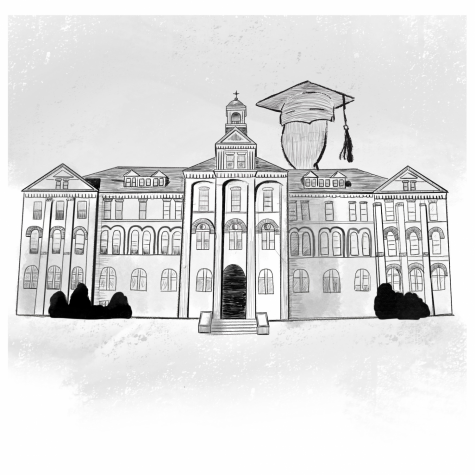The FSR might mean the death of Whitman’s liberal arts mission
February 18, 2021
“As you read these reports, I hope you will think about our overall goal of achieving a sustainable financial footing for the college in support of our liberal arts mission.” This is a quote from the initial email sent by Kathy Murry to the Whitman community regarding the Financial Sustainability Review, which detailed the “need” for significant cuts to the programs that help make Whitman the liberal arts intuition that it is. The FSR supports Whitman’s “liberal arts mission” by advocating for 68 percent of all faculty cuts to come from the humanities and arts, resulting in a decrease of 13.7 percent of the total faculty in those areas.
These are the first steps that will lead to the death of Whitman’s so-called liberal arts mission that the administration is apparently trying so hard to save. “Financial sustainability” is another way of saying “academic prioritization,” which is the devaluation of the humanities through a strict valuation of academics through money production and allocation of resources. Academic prioritization and its effects have been exacerbated throughout the COVID-19 pandemic, as colleges are using it as an excuse to cut programs that they deem financially unsustainable.
No matter the reasoning behind it, the goal of academic prioritization remains the same: find and cut the programs that the school deems unviable in our society.

Kathy Murry has also urged us to understand some of the reasoning behind these decisions. For example, there has been a decline in 18-year-olds who have an “interest in the type of education offered in liberal arts colleges” and the number of people who applied to Whitman with an expected family contribution below $10,000 per year has doubled since 2016. While these systematic issues are necessary to address when it comes to the significant expense of higher education, especially private education, Whitman’s Financial Sustainability Review does little to address these issues and Whitman’s role in perpetuating them.
Most liberal arts institutions are private, thus making big business out of an education that teaches us to think critically about the very institution we are in. This creates an educational system where money comes before “community.” This review shows more than just Whitman’s mission to make money: it shows a fundamental issue within our educational system, an educational system that is slowly killing liberal arts.
Students are taught from a young age that we must have an education that will directly contribute to a labor-based society. In simpler terms, you must study a discipline that leads to a ‘real’ job. This model negates the necessity for students to learn critical thinking and our need to understand the world, and this is something that everyone should have access to. Cuts to humanities and arts programs affect everyone, from the STEM field to the classics department.
The need for liberal arts is slowly being challenged within a society where money is the only signifier of value. Colleges weigh the value of departments by revenue, 18-year-olds weigh their decisions based on the ‘real world’ of money. The value of liberal arts cannot and should not be determined through statistical analysis; our liberal arts education touches every facet of our lives. A liberal arts education does more than just prepare students for a job, it teaches us how to think, not what to think and urges us not to sit back quietly.
The mission that Whitman has displayed through the Financial Sustainability Review is not one that helps save liberal arts, but is instead the first step towards the death of an education that prioritizes free and critical thinking.





